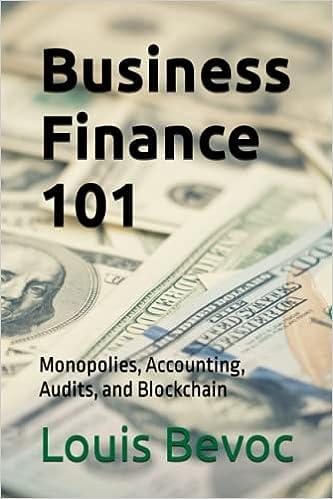
Problem \#19 Consider an economy populated by a continuum of measure one of investors indexed on interval [0,1]. Assume that initial wealth of each investor is equal to w and that investors' preferences are represented with E[U(C)]=E[eC], where C denotes the final consumption. Furthermore, assume that investors can invest in a safe bond that generates gross return R or in a risky stock that pays dividends D, which are normally distributed with mean D and variance D2. Let there be N shares outstanding and P be the corresponding price of a single share. We can expect that the price of a single share will be a) increasing with w b) increasing with D2 c) increasing with R d) None of the above Problem \#20 Consider an economy populated by a continuum of measure one of investors indexed on interval [0,1]. Assume that initial wealth of each investor is equal to w and that investors' preferences are represented with E[U(C)]=E[eC], where C denotes the final consumption. Furthermore, assume that investors can invest in a safe bond that generates gross return R or in a risky stock that pays dividends D, which are normally distributed with mean D and variance D2. Let there be N shares outstanding and P be the corresponding price of a single share. Furthermore, assume that each investor i receives signal si=D+i, where i is normally distributed with mean 0 and variance 2 and is independent across agents. Under such a scenario we can expect the price of a single share to a) be partially revealing of D b) be independent of D c) be fully revealing of D d) be partially revealing of D if 2 is large enough Problem \#19 Consider an economy populated by a continuum of measure one of investors indexed on interval [0,1]. Assume that initial wealth of each investor is equal to w and that investors' preferences are represented with E[U(C)]=E[eC], where C denotes the final consumption. Furthermore, assume that investors can invest in a safe bond that generates gross return R or in a risky stock that pays dividends D, which are normally distributed with mean D and variance D2. Let there be N shares outstanding and P be the corresponding price of a single share. We can expect that the price of a single share will be a) increasing with w b) increasing with D2 c) increasing with R d) None of the above Problem \#20 Consider an economy populated by a continuum of measure one of investors indexed on interval [0,1]. Assume that initial wealth of each investor is equal to w and that investors' preferences are represented with E[U(C)]=E[eC], where C denotes the final consumption. Furthermore, assume that investors can invest in a safe bond that generates gross return R or in a risky stock that pays dividends D, which are normally distributed with mean D and variance D2. Let there be N shares outstanding and P be the corresponding price of a single share. Furthermore, assume that each investor i receives signal si=D+i, where i is normally distributed with mean 0 and variance 2 and is independent across agents. Under such a scenario we can expect the price of a single share to a) be partially revealing of D b) be independent of D c) be fully revealing of D d) be partially revealing of D if 2 is large enough







